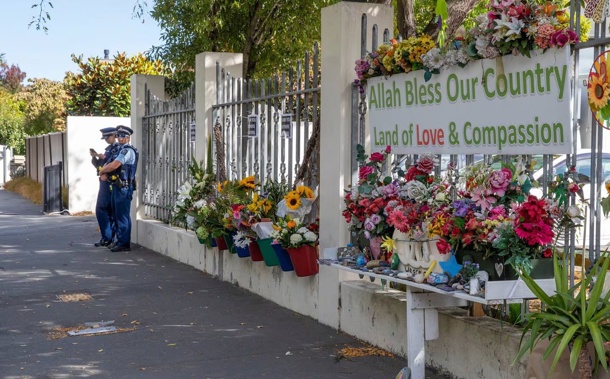
By RNZ
A new emergency services radio network will be trialled in Canterbury next year to try to improve co-ordination between police and St John who were hampered by communication breakdowns during the Christchurch terror attack.
Poor communication between police and paramedics has emerged as a key issue in the inquest into the murder of 51 worshippers at Al Noor Mosque and Linwood Islamic Centre on March 15, 2019.
The Coroners Court has heard that crucial information, such as dispatching ambulances to Linwood and safety clearances at both mosques, was not passed on as it should have been.
An Armed Offenders Squad (AOS) commander, who cannot be named, told the inquest he believed the new Public Safety Network would be trialled next year.
“There will be dedicated emergency services channels so emergency services will operate independently but when a big job that requires better co-ordination comes up, everyone can just switch to a new digital channel that will provide that,” he said.
The commander, who is one of New Zealand’s foremost tactical experts, said staff would require training so they knew how to use the network properly without overloading it.
/cloudfront-ap-southeast-2.images.arcpublishing.com/nzme/DFLA2TC5TYBFMSMUQKFLWTITCI.jpg)
Police officers keep watch outside the Al Noor Mosque in Christchurch. Photo / Mark Mitchell
Emergency channels were overloaded during the terror attack, with many witnesses saying it was almost impossible to use the police radio during a constant stream of transmissions.
The AOS commander, who was on leave when the shooting happened, led team debriefs afterwards.
- St John were ill-equipped to deal with mosque shootings — expert
- Emergency response like trying to put together 1000-piece jigsaw puzzle, terror inquest finds
- Mosque attack incident controller unaware of St John's safety concerns
- Terror attack inquest: Paramedics pulled over for 6 minutes en route to second mosque
- 'They needed a hospital': Paramedic breaks down talking about terror attack survivors
He told the inquest he only recently learned that badly injured people were left alone at Al Noor Mosque for more than 10 minutes because AOS staff were redeployed to the Linwood Avenue mosque.
“I was upset about it, certainly,” he said.
International counter-terrorism experts earlier told the court it was unacceptable for police to leave the victims alone.
The commander told counsel assisting Coroner David Boldt that better co-ordination, including accurate situation reports from officers on the ground, would help to ensure that did not happen again.
The officer also told the inquest that the commander in charge of the AOS did not know there was a sniper course being held in Christchurch on the day of the attack, which meant he had access to more specially trained police staff.
He said the AOS chief should have known because it would have helped with co-ordinating resources.
The inquest will examine the following 10 issues over seven weeks:
- Events of March 15, 2019, from the commencement of the attack until the terrorist’s formal interview by police
- Response times and entry processes of police and ambulance officers at each mosque
- Triage and medical response at each mosque
- The steps that were taken to apprehend the offender
- The role of, and processes undertaken by, Christchurch Hospital in responding to the attack
- Co-ordination between emergency services and first responders
- Whether the terrorist had any direct assistance from any other person on March 15, 2019
- If raised by immediate family, and to the extent it can be ascertained, the final movements and time of death for each of the deceased
- The cause of death for each of the victims and whether any deaths could have been avoided
- Whether Al Noor Mosque emergency exit door in the southeast corner of the main prayer room failed to function during the attack and, if so, why?
The inquest continues.
- RNZ
Take your Radio, Podcasts and Music with you









